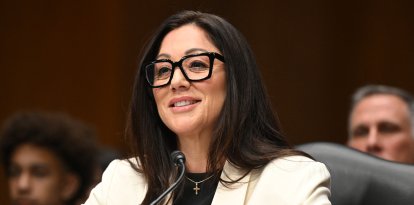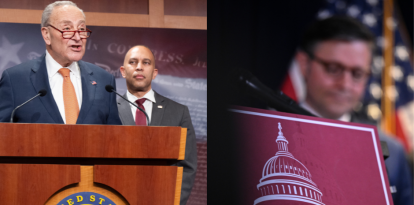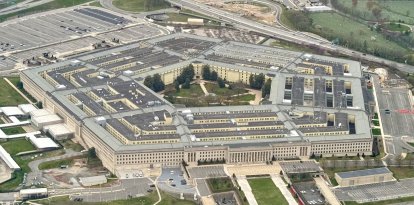DNC Rules Committee ignores Dem´s criticism of Biden and speeds up the process to nominate him in virtual meeting
At this point, the president's candidacy is teetering, with much of his party turning its back on him and calling for his retirement.

Biden speaks during an economic summit at the College of Southern Nevada in Las Vegas
The Democratic National Convention (DNC) Rules Committee held a briefing Friday to educate delegates about the process of President Joe Biden's official virtual nomination, which is planned to be in early August to avoid the risk of alleged election lawsuits in Ohio.
According to NBC News the committee, charged with overseeing the nomination process, is moving ahead with its plans despite the fact that dozens of congressmen, major donors and party leaders are urging Biden to step aside. The situation highlights the unprecedented internal crisis in the Democratic Party and how complicated a replacement process for the current president would be in the event he decides to drop out of the race.
According to the report, the message to the delegates was that everything continues according to the plan outlined in May, when it was agreed to nominate Biden virtually before the convention, scheduled for August 19 in Ohio.
The Democrats' idea is to nominate Biden before the convention, which is common, due to a rule in Ohio that the deadline for parties to submit the names of their candidates for the ballot is August 7.
While Republicans, who control the state legislature, voted for a bill to extend the deadline, it would not take effect until Sept. 1, so Democrats believe they are still technically exposed to receiving costly and complex election lawsuits that could end with Biden off the ballot. Republicans deny those concerns and accuse Democrats of incompetence, but White House officials don't want to take that risk and, along with the committee, came up with the virtual roll-call nomination.
The purpose of Friday's meeting, however, was hardly to discuss plans for a virtual vote to formally nominate Biden. No vote or decision has been taken so far, except that they will meet again no later than July 26 to establish and vote for official rules.
According to NBC News, the committee, which as usual is strongly aligned with the White House, received hardly any questioning of the process or doubts about President Biden's current status amid calls for resignation:
"The virtual roll call idea has plenty of detractors inside the party, but the only hint of dissent in the meeting came in questions about whether other candidates could be nominated for the virtual roll call (answer: technically yes, but actually, probably not). Otherwise, the virtual meeting was uneventful — despite starting moments after four more Democratic members of Congress called on Biden to step aside."
In any case, even if White House-allied Democrats are trying to speed up the process, at the end of the day it all depends on Biden and his decision whether or not to stay in the race as his party slowly turns its back on him.
If Biden decides to step aside, the committee will have to meet again and, in the words of Elaine Kamarck, an expert on the subject and member of the Democratic National Committee, will have to determine who wants to run and evaluate what the nomination process would look like.
Normally, in order to run, a potential candidate would need to gather between 300 and 600 signatures from delegates to endorse his or her candidacy. In addition, a delegate could only sign one petition and 50 signatures could not come from a single state, under the current rules.
In short, if Biden decides to withdraw, Kamarck explained that it would be like reorganizing a primary in an incredibly short period of time with the Ohio issue looming just around the corner.
RECOMMENDATION






















